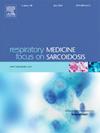膳食模式与成人哮喘发病率。系统回顾和荟萃分析。
IF 3.5
3区 医学
Q2 CARDIAC & CARDIOVASCULAR SYSTEMS
引用次数: 0
摘要
目的:我们按照 PRISMA 和 MOOSE 指南,对已发表的前瞻性队列研究和随机对照试验(RCT)进行了系统回顾和荟萃分析,评估健康饮食模式与成人哮喘发病率之间的关系:纳入标准是评估饮食模式及其与成人哮喘发病率关系的 RCT 或队列研究。我们检索了两个数据库:Medline (PubMed) 和 ISI Web of Science,检索期至 2023 年 11 月。两位独立审稿人对纳入研究的质量进行了评估。采用纽卡斯尔-渥太华量表(NOS)评估偏倚风险:系统综述纳入了 10 项队列研究,并对其中 7 项研究进行了定量随机效应荟萃分析。这些研究共纳入了 597,909 名参与者,发生了 10,988 起哮喘事件。膳食模式或指数最常通过有效的食物频率问卷进行测量。随访时间从 5 年到 16 年不等。当我们将所有纳入的研究汇总后发现,哮喘风险的降低与较高的高质量饮食模式坚持率并无明显关联(相对风险 [RR]:0.91;95% 置信区间 [CI]:0.81 至 1.02)。然而,研究之间存在很大的异质性(I2 = 81.8%,p < 0.001),并发现了潜在的异质性来源:讨论:不同研究在测量哮喘发病率和评估饮食模式方面的差异可能是异质性的潜在来源。尽管如此,根据目前现有的证据,坚持健康饮食模式与降低成人哮喘发病风险之间的有益联系并不成立。本文章由计算机程序翻译,如有差异,请以英文原文为准。
Dietary patterns and asthma incidence in adult population. Systematic review and meta-analysis
Objective
We conducted a systematic review and meta-analysis of published prospective cohort studies and randomized controlled trials (RCT) assessing the association between a healthy dietary pattern and adult-onset asthma following the PRISMA and MOOSE guidelines.
Methods
Inclusion criteria were RCT or cohort studies evaluating a dietary pattern and their association with asthma incidence in adults. We searched two databases, Medline (PubMed) and ISI Web of Science until November 2023. Two independent reviewers assessed the quality of the included studies. Risk of bias was assessed using the Newcastle-Ottawa Scale (NOS).
Results
Ten cohort studies were included in the systematic review and seven of them were assessed in a quantitative random-effects meta-analysis. They included a total of 597,909 participants with 10,988 asthma events. Dietary patterns or indexes were most frequently measured with validated food frequency questionnaires. Follow-up ranged between 5 and 16 years. When we pooled all the included studies, no significant reduction in asthma risk was associated with higher adherence to a high-quality dietary pattern (relative risk [RR]: 0.91; 95 % confidence interval [CI]: 0.81 to 1.02). However, there was a substantial between-study heterogeneity (I2 = 81.8 %, p < 0.001) and potential sources of heterogeneity were identified.
Discussion
Differences between studies in measuring the incidence of asthma, as well as, in assessing dietary patterns are likely to be potential sources of heterogeneity. Nevertheless, with the currently available evidence a beneficial association between adherence to a healthy dietary pattern and lower risk of adult-onset asthma cannot be supported.
求助全文
通过发布文献求助,成功后即可免费获取论文全文。
去求助
来源期刊

Respiratory medicine
医学-呼吸系统
CiteScore
7.50
自引率
0.00%
发文量
199
审稿时长
38 days
期刊介绍:
Respiratory Medicine is an internationally-renowned journal devoted to the rapid publication of clinically-relevant respiratory medicine research. It combines cutting-edge original research with state-of-the-art reviews dealing with all aspects of respiratory diseases and therapeutic interventions. Topics include adult and paediatric medicine, epidemiology, immunology and cell biology, physiology, occupational disorders, and the role of allergens and pollutants.
Respiratory Medicine is increasingly the journal of choice for publication of phased trial work, commenting on effectiveness, dosage and methods of action.
 求助内容:
求助内容: 应助结果提醒方式:
应助结果提醒方式:


